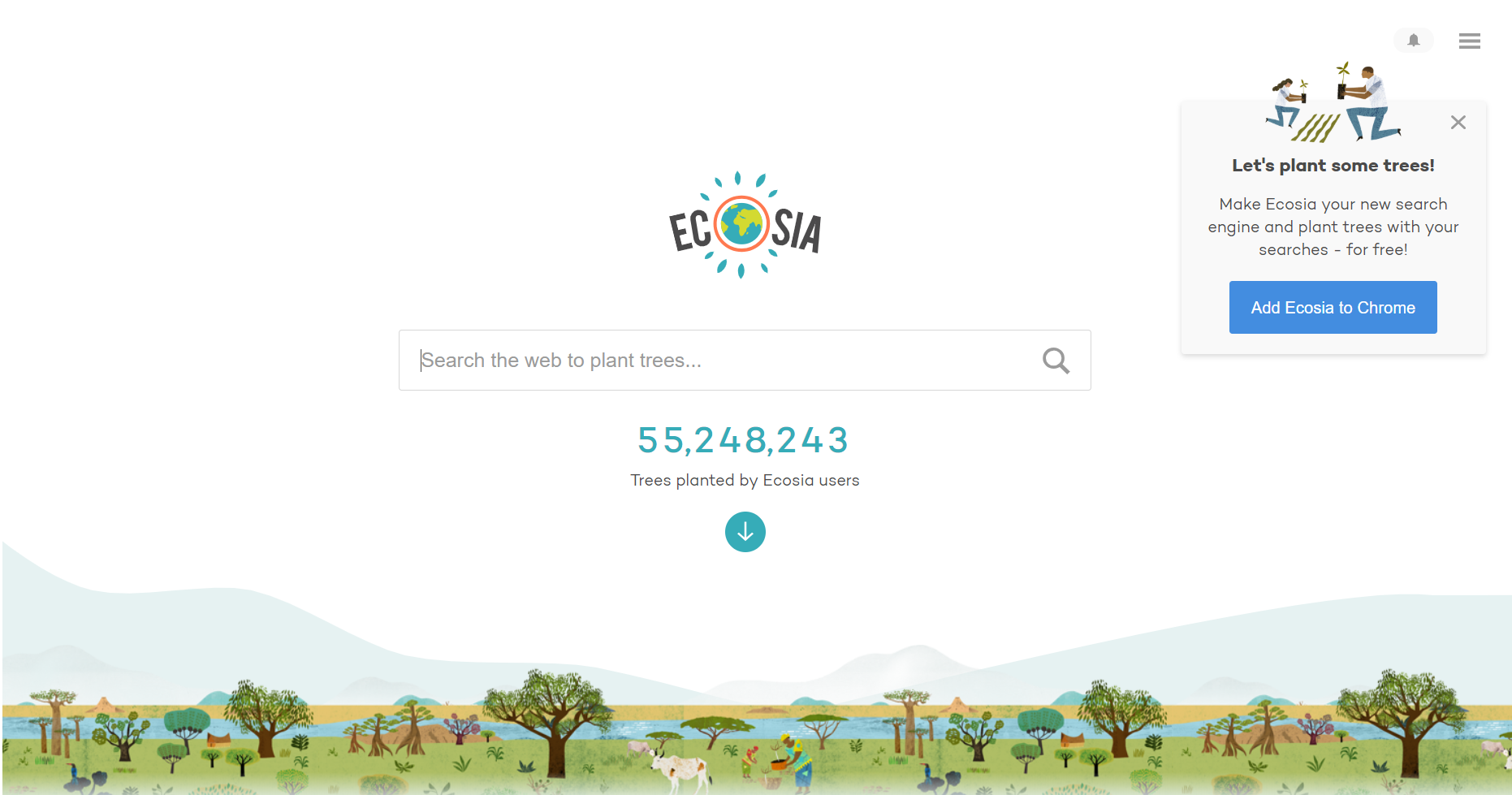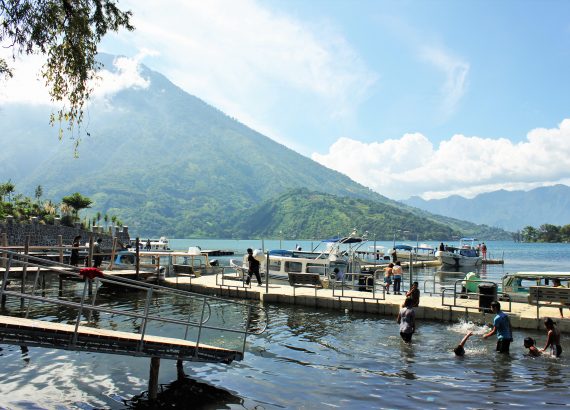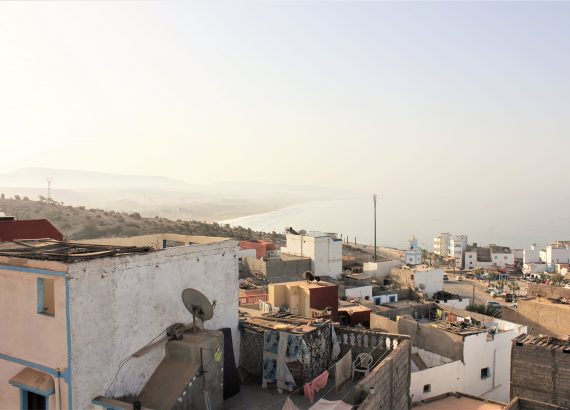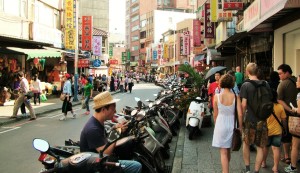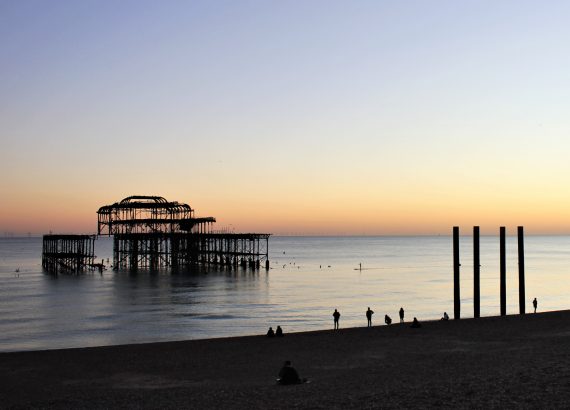13 Practically Painless Ways To Become Environmentally Friendly
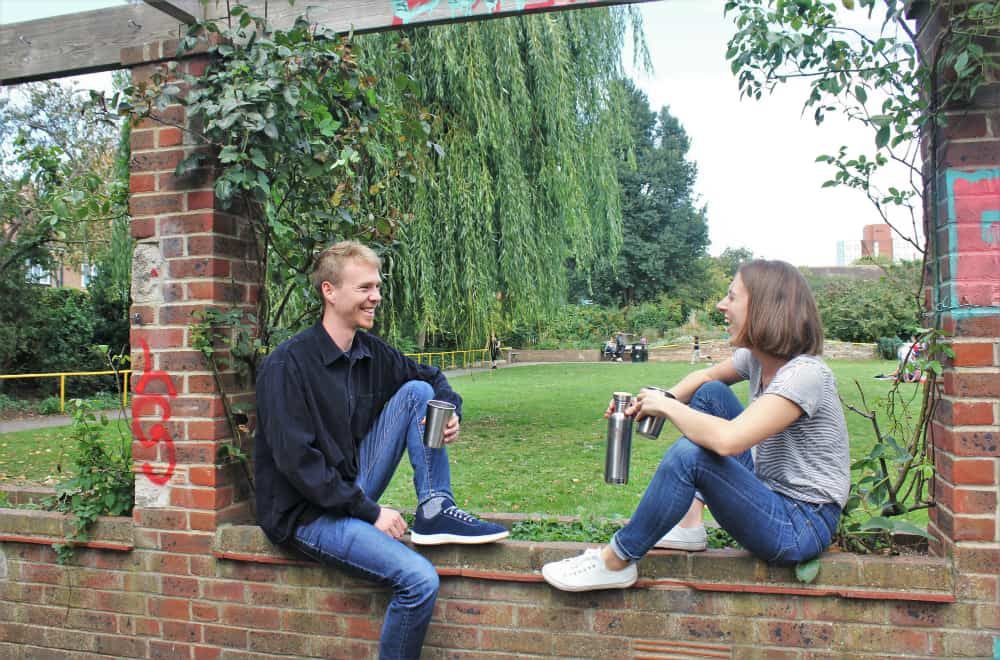
Zero-waste living isn’t always easy… Want to do your bit for the planet, but without too much self-sacrifice? We’ve got your back! These 13 practically painless ways to become environmentally friendly are so easy that once you start, you’ll never look back!
Jump To:
- Reduce your meat consumption
- Stop buying leather products
- Donate to environmentally-friendly charities
- Swap to a carbon-neutral energy supplier
- Don’t throw away food
- Use a stainless steel water bottle
- Use a keep cup
- Get your groceries delivered to your home
- Walk and cycle more!
- If you have to drive, fill up your car
- Use an eco-friendly internet browser
- Use Freecycle
- Use a Kindle, audiobook, library or pre-loved book!
1. Reduce your meat consumption
Scientists say that we can protect the environment by eating less meat and dairy. This is because raising animals takes up 83% of farmland globally for 18% of the calories we consume. Many young people are embracing a vegetarian and vegan lifestyle. But a flexitarian lifestyle, where you don’t eat meat on two or three days a week, can be a practically painless way to improve your health and protect the environment.

2. Stop buying leather products
We don’t just raise animals for meat, we also raise them for other materials such as leather, fur and feathers. The next time you need to replace your belt or your wallet, think about buying a more environmentally-friendly alternative.
Eco-leather, for example, is made partly from recycled materials like plastic bottles. It’s also nearly indistinguishable from the real thing! Brands like Watson & Wolfe make quality wallets from vegan leather which don’t feel at all like a downgrade from a traditional leather product. Check out Po-Zu for vegan shoes.
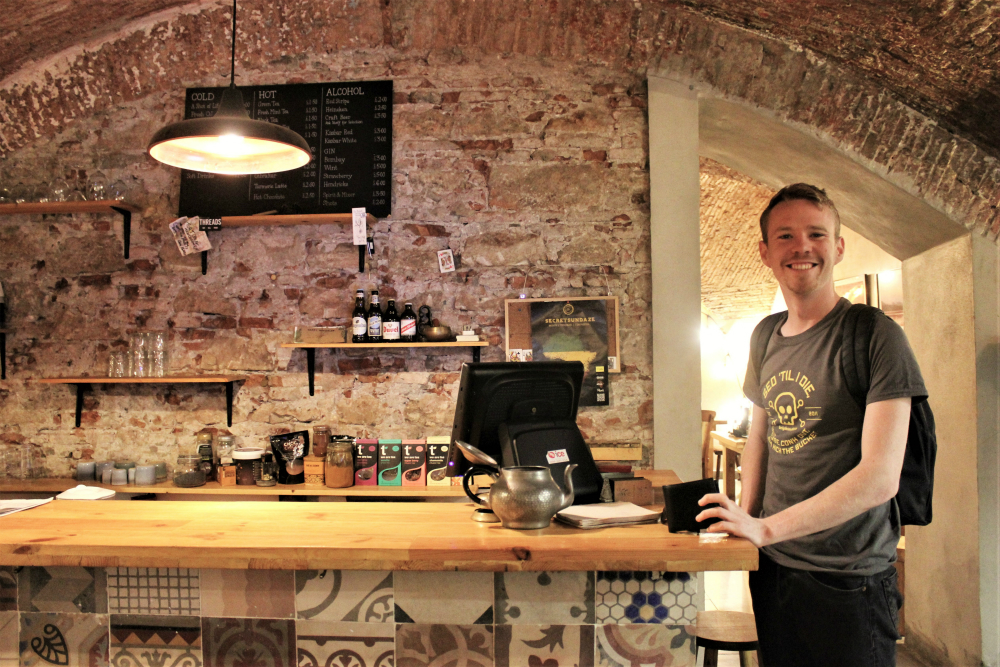
3. Donate to environmentally-friendly charities
Environmentally-friendly charities need all the funding they can get! Personally, I’m a big fan of Trees For Cities. This charity does exactly what you might think: it plants trees in cities around the world. Not only are trees beautiful, but they also help to remove pollution from the air we breathe. You can start by donating as little as £1 per month to Trees For Cities, making it practically painless for almost everyone.
4. Swap to a carbon-neutral energy supplier
Not all energy suppliers are equal! Do your research and see if any of your local energy suppliers have any green credentials. If you live in the UK, you can swap to an energy supplier like Bulb. The electricity supplied by Bulb comes from 100% renewable sources. Better yet, Bulb works out cheaper than many of its competitors.
You can earn £50 in credit when you switch to Bulb by using this link.
5. Don’t throw away food
How can it be that we throw away hundreds of thousands of tonnes of good food each year, while too many people go hungry? In the UK, almost 5% of people have gone more than a full day without food due to financial difficulties.
Instead of throwing away food, use a stainless steel lunchbox to keep your leftovers for your next meal. It’s economical, saves time and money and cuts down on waste. For tinned food and other food items with a long shelf life, consider donating to your local food bank.
Option 1:
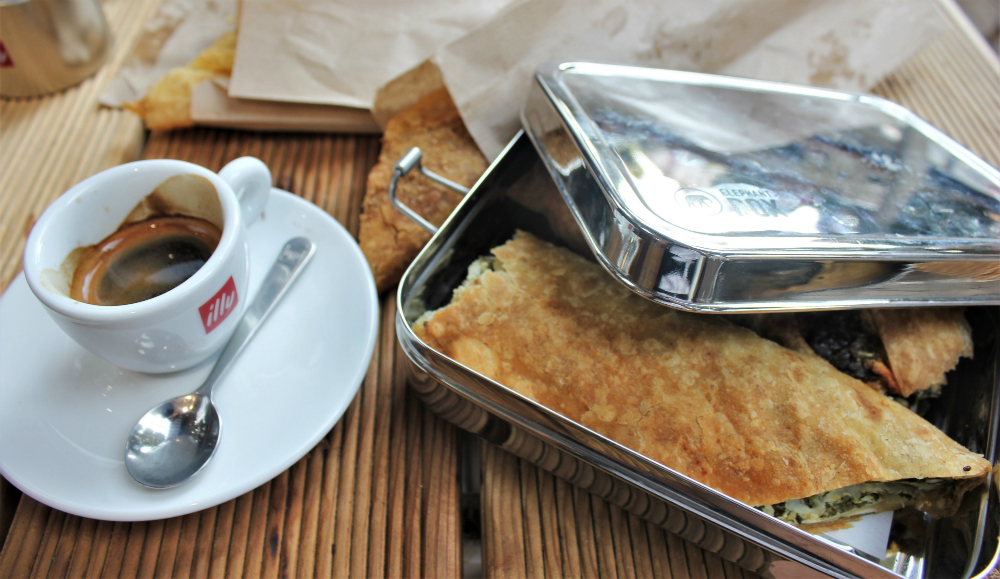
Option 2:
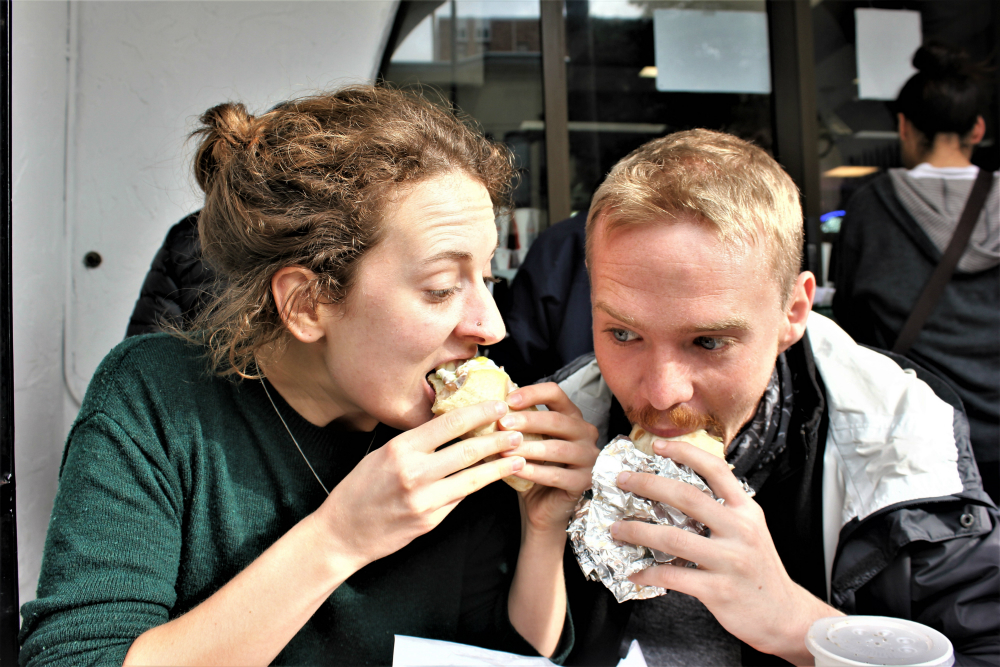
6. Use a stainless steel water bottle…
Today, it seems monstrous to most people that normal people could have ever allowed children to work long hours in dangerous conditions. I’m convinced that in a hundred years time, any people still around will be equally shocked by the amount of non-essential, disposable plastic that we buy. Too much of this plastic ends up in the ocean, where it damages marine life and forms enormous plastic islands. A simple stainless steel water bottle is a sturdy and cost-effective alternative to buying bottled water.
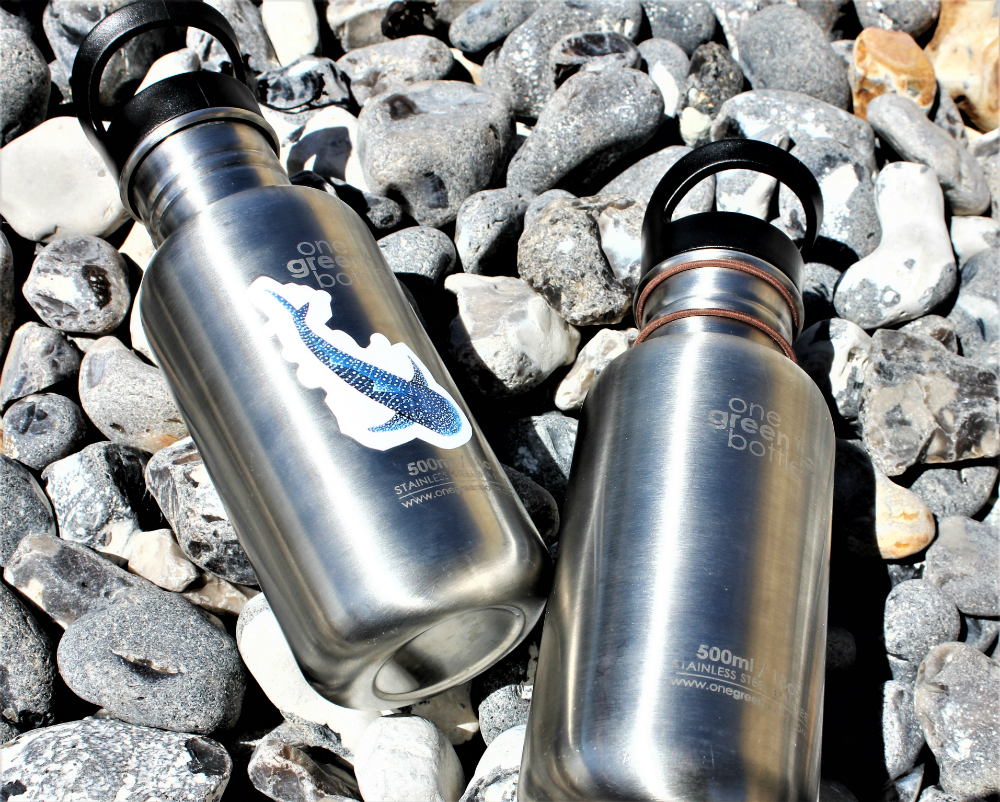
7. …and a keep cup
A keep cup allows you to buy coffee or tea whilst out and about without using yet more disposable plastic. Keep cups come in beautiful designs and many outlets offer consumers a discount when they bring their own cup!
8. Get your groceries delivered to your home
If there’s one thing we can all agree to do without, it’s the weekly supermarket shop. Getting groceries delivered to your home isn’t just a time saver, it’s a win for the environment too. Think about it: rather than ten people driving ten cars to the supermarket, you have one truck deliver goods to ten people.
Try to buy food that comes in easily recyclable packing, such as tins, jars and cardboard. If possible, see if a local farm will deliver your fresh fruits and vegetables. It’s often very affordable — we pay just £11 per week — and it’s much better for the environment than having fruits flown in from abroad.

9. Walk and cycle more!
I’ll admit that not everyone will think of cycling as painless, especially if there are hills involved! But in the long-term, walking and cycling become painless ways to get around, especially in big cities. This is because you’ll quickly become fitter and learn to love a fifteen-minute cycle-ride.
In comparison, getting stuck in traffic is super painful! And you know what else is painful? Spending £2,600 per year just to run your car (which is the average spend in the UK). For that amount, you could even get yourself an electric bike.
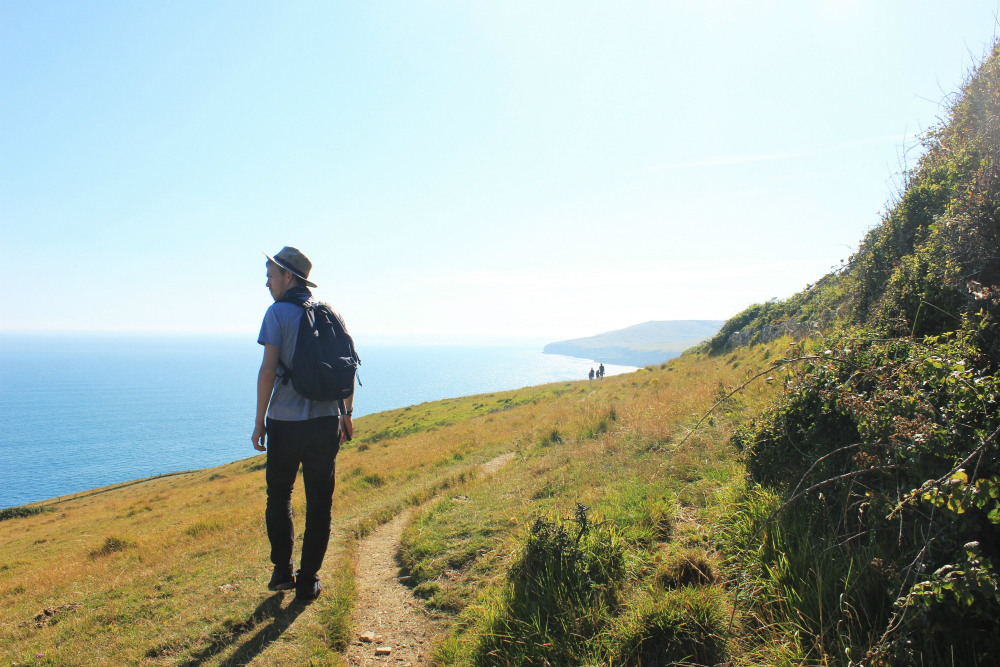
10. If you have to drive, fill up your car
Before you all start commenting, yes some people do have to drive. If you live in the countryside, you might have to travel considerable distances without much in the way of public transport. Some people also have long-term health issues which prevent the use of a bicycle.
But if you do have to drive, one thing all drivers can do is try to fill up their car. Use a carpooling service like BlaBlaCar to find other travellers going in the same direction. Not only is this good for the planet, but it also allows you to split travel costs.
11. Use an eco-friendly internet browser
Quite possibly the least painful tip on this list, there’s no reason not to switch to an eco-friendly internet browser such as Ecosia. All internet browsers, such as Google Chrome and Ecosia, are funded by ads. The difference is that Ecosia puts the money that it generates into planting trees. So you can save the planet just by using the internet!
12. Use Freecycle
Need a new sofa, leaf blower or table? Before you rush to your nearest shop and do something that your bank account might not appreciate, why not see if someone is giving one away for free on Freecycle? Freecycle is a not-for-profit organisation which connects people who want free stuff with people who want to chuck something out!
When we moved into our new flat, we managed to get all of our kitchenware through Freecycle off a chap who was moving to Africa. Much better to have these things reused rather than in a landfill!
13. Try an e-reader, audiobook, library or pre-loved book!
I love to read, but I don’t much love to think of all the dead trees that went into making my favourite books… Fortunately, technology has a solution. These days, it’s possible to download an entire library onto your e-reader, without so much as looking at a tree. Audiobooks are another way of enjoying literary content without deforestation.
Pine for the old-fashioned feel of a good book between your fingers? Make good use of your local library or second-hand book shop instead of buying something new. These vital services only survive when used, so show your support and save a couple of pennies on buying new.

What are your top tips for being more environmentally friendly? Share with us in the comments!
